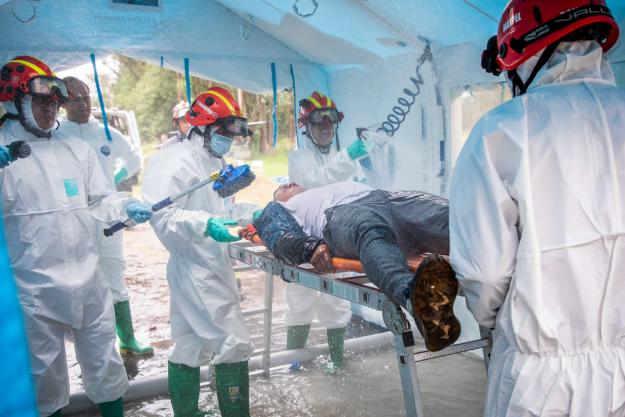
Participants practice simulated decontamination of victim of chemical exposure.
Victim is moved through decontamination station from entry to exit.
THE HAGUE, Netherlands—30 June 2022—Simulating an emergency provides a valuable opportunity for first responders to learn emergency management roles and responsibilities within a non-threatening environment. From 6 to 10 June first responders from the Latin America and Caribbean region participated in a training that included a chemical emergency simulation designed to expand their skills in managing complex chemical emergencies.
The training took place in Quito, Ecuador, and was co-organised by the Organisation for the Prohibition of Chemical Weapons (OPCW) and the Ministry of National Defence of Ecuador, with the support of the Firefighter Corps of the city of Quito. It built on competencies gained by participants during previous regional emergency response trainings provided by the OPCW.
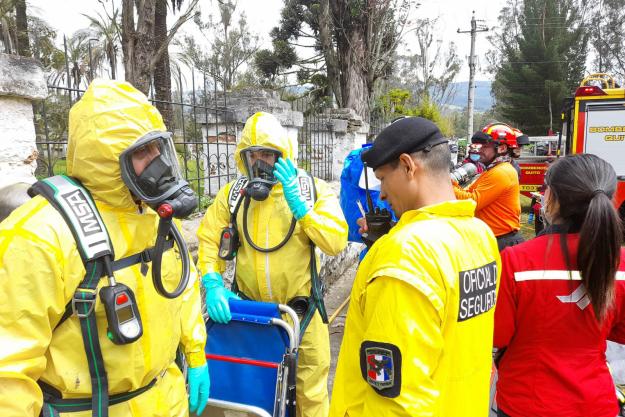
Participants receive instructions before entering simulated hot zone.
Participants assumed different roles and responsibilities during the simulation, from commander to safety officer to rescue team members.
The course was delivered by an international team of instructors from Argentina, Ecuador, Peru, and Spain under the Development and Exchange of Instructors Programme managed by the Assistance and Protection Branch of OPCW’s International Cooperation and Assistance Division.
Rafael Poveda, Vice Minister of National Defence, stated in his opening remarks: “The National Ministry of Defence and the Technical Secretariat have coordinated this training to unify operational protocols and procedures in the region in the face of any chemical threat in Latin America while working for and promoting the peaceful use of chemical agents.”
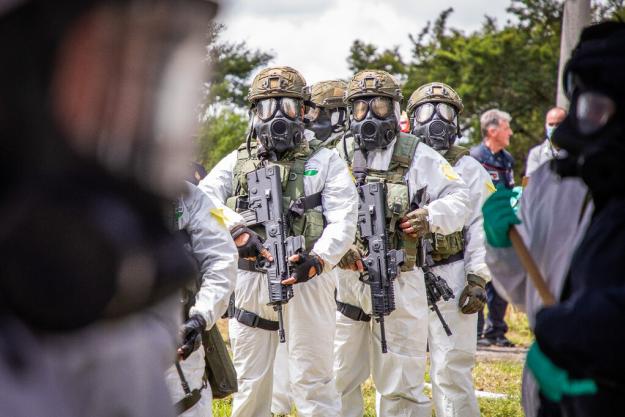
Simulated training involved a chemical terrorist attack.
Ecuadoran special operations group simulates response.
The Senior Program Officer of OPCW’s Assistance and Protection Branch, Mr Miguel Albaladejo Pomares, highlighted: “This type of exercise is very important, not only for the development of emergency response capabilities involving chemical warfare agents, but also to increase and strengthen the network of experts in the region.”
During the training, participants took part in a simulated attack with chemical warfare agents. Participants learned how to coordinate and manage the emergency and integrate themselves as part of the emergency response groups. They also practiced implementing the Incident Command System methodology, which uses a standardized approach for the control and coordination of an emergency response.
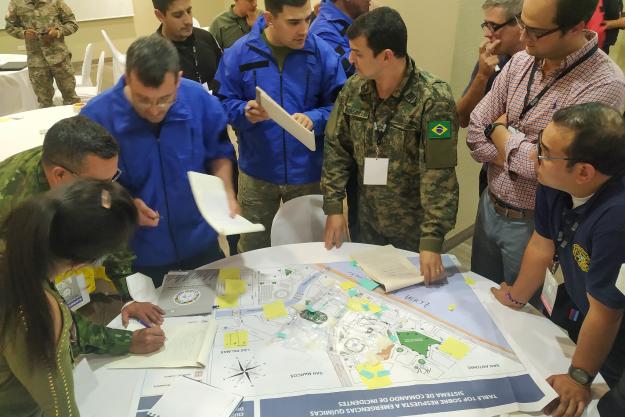
Participants in coordination phase of table-top exercise.
The simulation took place at the General Marcos Subia Military Fort in collaboration with Ecuadoran chemical, biological, radiological, and nuclear (CBRN) operational response groups.
Authorities from the Ministry of National Defense and Ministry of Production as well as industry representatives from small and medium-size chemical facilities in the Pichincha region attended as observers.
38 nationals and international participants from 15 OPCW Member States in the Latin America and the Caribbean (GRULAC) region attended the exercise: Argentina, Brazil, Chile, Colombia, Cuba, Ecuador, El Salvador, Guatemala, Honduras, Nicaragua, Panama, Paraguay, Peru, Uruguay and Venezuela (Bolivarian Republic of).
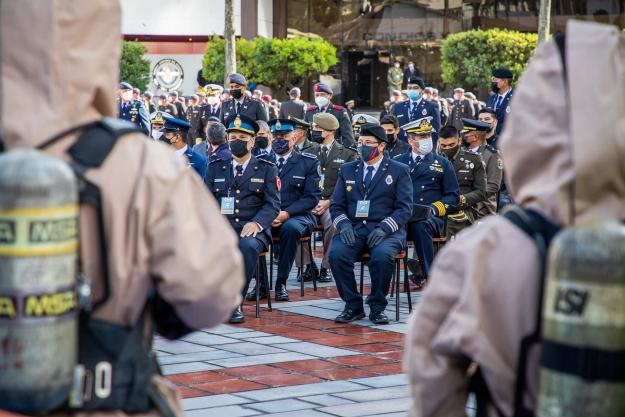
Opening ceremony for the table-top exercise.
Quito, Ecuador
Background
As the implementing body for the Chemical Weapons Convention, the OPCW, with its 193 Member States, oversees the global endeavour to permanently eliminate chemical weapons. Since the Convention’s entry into force in 1997, it is the most successful disarmament treaty eliminating an entire class of weapons of mass destruction.
Over 99% of all declared chemical weapon stockpiles have been destroyed under OPCW verification. For its extensive efforts in eliminating chemical weapons, the OPCW received the 2013 Nobel Peace Prize.
